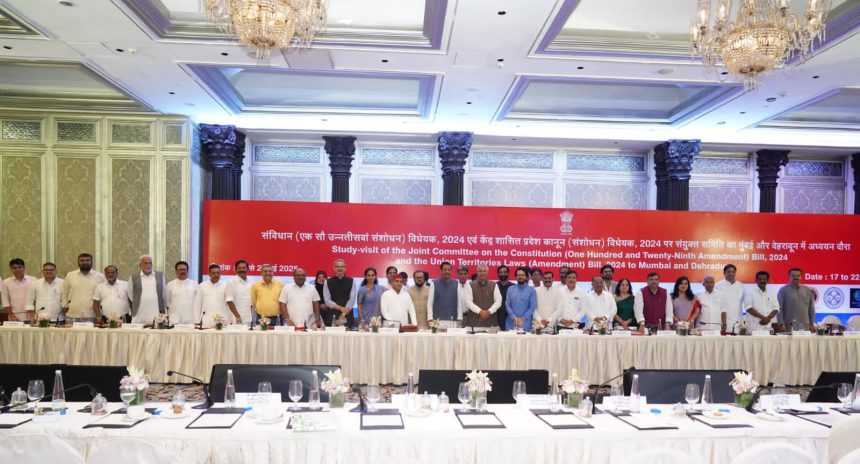One Nation One Election; Ex CM Prithviraj Chavan Engages with Parlimetian Committee
By: Arvind Jadhav
Mumbai: A significant step towards exploring the feasibility of the “One Nation One Election” concept was taken recently when a high-level Joint Parliamentary Committee (JPC) visited Maharashtra. The committee, formed by the Central Government, held crucial discussions with senior officials from various state departments and leaders of prominent political parties during their three-day visit from May 17 to May 19.
Engaging with Key Leaders
Led by MP P.P. Chaudhary, the 31-member committee met with former Chief Minister Prithviraj Chavan, party presidents, and key leaders to gather insights on the proposed bill. The discussions were attended by notable leaders, including MPs Supriya Sule (NCP), Manish Tiwari (Congress), Anil Desai (Shiv Sena), Sanjay Singh (AAP), Anurag Thakur and Sambit Patra (BJP), Abu Azmi (Samajwadi Party), and Mahadev Jankar (Rashtrawadi), among others. These interactions provided a platform for stakeholders to share their perspectives on the potential benefits and challenges of implementing “One Nation One Election” in the country.
Understanding the Committee’s Role
The committee’s primary objective is to compile a comprehensive report on the pros and cons of implementing “One Nation One Election” in the country. The JPC comprises 21 members from various parties, including 10 from BJP, 3 from Congress, and representatives from other prominent parties like Samajwadi Party, Trinamool Congress, DMK, TDP, NCP, and RLD. This diverse composition ensures that the committee’s report is informed by a broad range of viewpoints and expertise.
The Road Ahead
After engaging with stakeholders across states, the committee will finalize its report and submit it to the government. The report is expected to provide valuable insights and recommendations on the feasibility of implementing “One Nation One Election” in India. The government will then consider the committee’s findings and recommendations while making decisions on the proposed bill.
Exploring the Concept’s Implications
The concept of “One Nation One Election” has been a topic of discussion among policymakers and political leaders in India. Proponents argue that it could help reduce the financial burden of frequent elections, minimize disruptions to governance, and promote national unity. However, critics raise concerns about the potential impact on federalism, regional parties, and the democratic process. The JPC’s report will likely shed light on these aspects and provide a nuanced understanding of the implications of implementing “One Nation One Election” in India.








